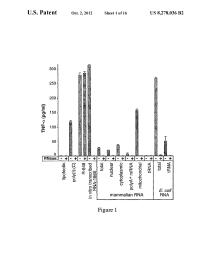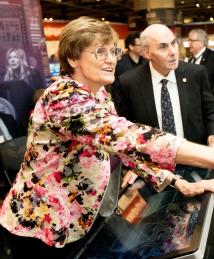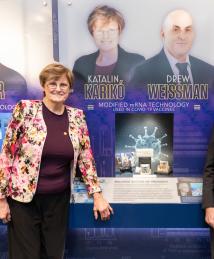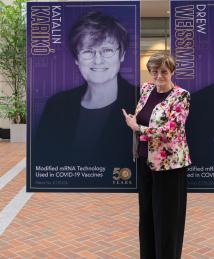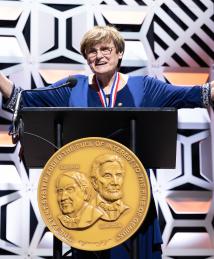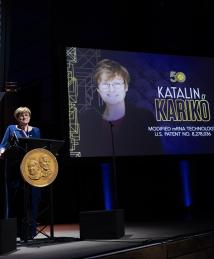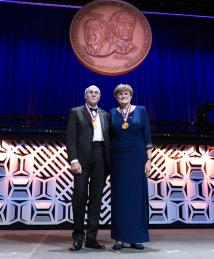Katalin Karikó
"Stay curious, adopt the right attitude and stay on the track no matter how long and winding that road may be."
Biochemist Katalin Karikó and immunologist Drew Weissman discovered how to enable messenger ribonucleic acid (mRNA) to enter cells without triggering the body’s immune system. Their critical research laid the foundation for the mRNA vaccines developed by Pfizer-BioNTech and Moderna for the fight against the COVID-19 pandemic.
Born in Szolnok, Hungary, Karikó was always curious and enjoyed exploring nature. “My science teachers made sure that I stayed curious for life and encouraged me to keep learning,” she said.
She earned her bachelor’s degree in biology in 1978 and her doctorate in biochemistry in 1982 from the University of Szeged. She worked at the Biological Research Center of the Hungarian Academy of Sciences before immigrating to the United States in 1985.
Karikó joined the faculty of the University of Pennsylvania in the Perelman School of Medicine’s neurosurgery department in 1989. Here, she and Weissman started to collaborate in 1997.
Having begun working with RNA during her graduate studies, Karikó has been “passionate about this little molecule ever since.” mRNA is the genetic material in the human body that instructs cells to make proteins. At the heart of the COVID-19 vaccines is modified, synthetic mRNA that is delivered into the human body and instructs cells to make copies of the virus’ spike protein. Later, the body’s immune system will recognize the real virus upon exposure and a rapid immune response will occur to protect against severe disease.
Unmodified mRNA molecules are unable to slip past the body’s immune system, but Karikó and Weissman modified mRNA so it could avoid immediate immune detection, remain active longer and efficiently instruct cells to create antigens to protect against severe disease. Karikó and Weissman’s discovery in the early 2000s that exchanging one of the four building blocks of mRNA molecules, uridine, with pseudouridine created a modified mRNA with favorable qualities, including reduced adverse reactions. This fundamental discovery paved the way for modified mRNA to be potentially used in a wide array of future vaccines and treatments.
Since December 2020, several billion mRNA vaccine doses have been administered worldwide to combat the COVID-19 respiratory disease caused by SARS-CoV 2, a novel coronavirus discovered in 2019.
Karikó, who holds 14 U.S. patents, is a professor at the University of Szeged in Hungary and an adjunct professor of neurosurgery at the University of Pennsylvania. Karikó is also a founding member of the planning committee for the International mRNA Health Conference, an event held annually since 2013.
Among her many honors is the 2023 Nobel Prize in Physiology or Medicine. Karikó was awarded the Lasker-DeBakey Clinical Medical Research Award in 2021. As she accepted this award, she remarked, “I think about all of the young girls who may become inspired by my story and want to become scientists. To them I say: Stay curious, adopt the right attitude and stay on the track no matter how long and winding that road may be.”
